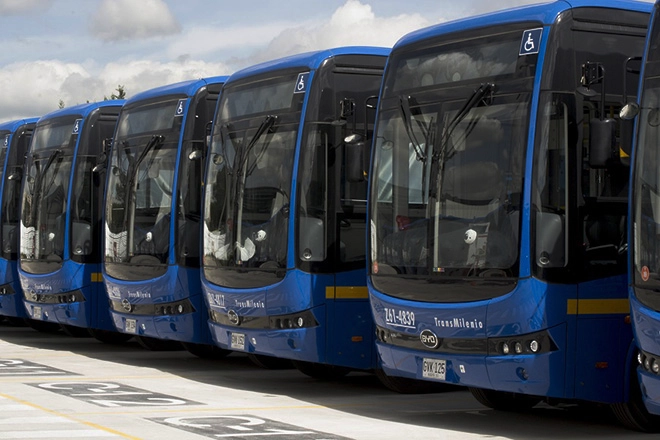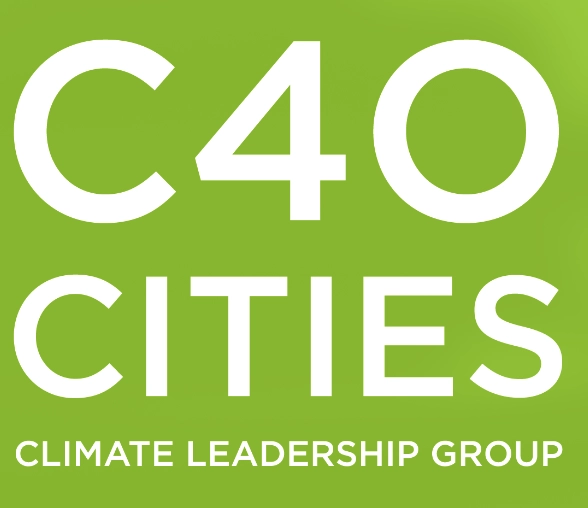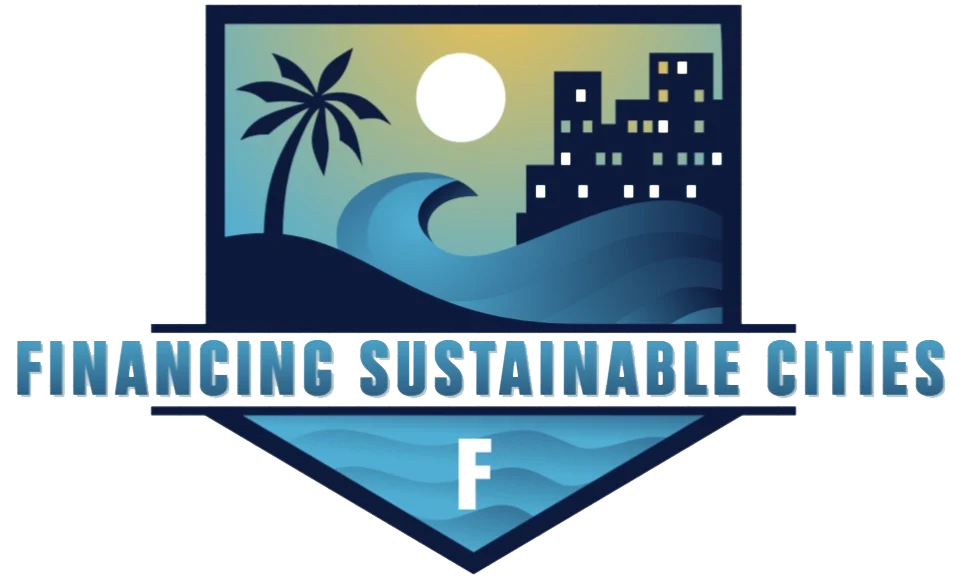2024
Financing Sustainable Cities Initiative
Assisting cities in boosting and expanding investments for sustainable urban solutions.
As urban populations expand at an unprecedented rate, cities face immense pressure to adapt and evolve in ways that foster economic, cultural, and political advancement while minimizing environmental impact. The Financing Sustainable Cities Initiative (FSCI) aims to equip urban centers with strategies and resources to create resilient, low-carbon environments.
39%
reduction in fuel consumption and CO2 emissions
70%
Global greenhouse gas emissions.
55%
Транспорт выбрасывает оксидов азота
28%
энергетика выбрасывает оксидов азота
Dear Partners
We would like to express our sincere gratitude to each of you for your support and active participation in our joint projects. Your professionalism and coordinated efforts have enabled us to achieve significant results in promoting sustainable urban solutions and creating effective tools for their implementation.


We would like to extend special thanks to Spribe. Your contribution to the development of our website and ensuring its security has been invaluable. Thanks to your technical expertise and attention to detail, our project has gained a reliable platform on which we can confidently build future plans. Your involvement has been a crucial element of our shared success.
Thank you all for your hard work, dedication, and collaboration. We appreciate your contribution and look forward to continuing our successful partnership.
Talented Band
Members
By 2050, over two-thirds of the world’s population will reside in urban areas. Cities contribute more than 70% of global greenhouse gas emissions, highlighting the urgent need for sustainable infrastructure. Achieving the goals of the Paris Agreement requires cities to adopt low-carbon, resilient infrastructures that can support rapid urbanization.
While the Paris Agreement sets ambitious targets for emission reduction, national commitments alone are insufficient. Cities play a pivotal role in filling this gap by implementing sustainable urban solutions. This is where the FSCI comes into play, providing the necessary tools and resources to support cities in their sustainability efforts.

The Role of FSCI in Promoting Sustainable Cities
A Collaborative Approach
The FSCI is a partnership among the WRI Ross Center for Sustainable Cities, the C40 Cities Climate Leadership Group, and the Citi Foundation, launched in 2015. Each organization contributes unique expertise:
WRI Ross Center for Sustainable Cities: Provides analytical and research expertise.
C40 Cities Climate Leadership Group: Connects city leaders for impactful solutions.
Citi Foundation: Offers support for urban economic progress and funding.
Together, these organizations offer technical assistance and innovative solutions, enabling cities to accelerate and scale up investments in sustainable urban projects.
Bridging the Infrastructure Gap
The demand for sustainable urban infrastructure is immense, with cities facing an annual shortfall of approximately $1 trillion. Many urban projects stall due to a lack of clear action plans and examples of successful implementation. The FSCI addresses these challenges by offering web-based tools that guide cities from project ideation to execution.
Innovative Tools for Urban Solutions
The FSCI platform provides tools to help cities navigate sustainable development challenges:
- Explore Tool: This comprehensive catalogue offers access to over 150 investments across 80 cities, detailing funding sources, physical assets, and political frameworks. City officials can learn from successful projects and apply these lessons to their contexts.
- Design Tool: This step-by-step guide helps decision-makers conceptualize and implement projects, generating a printable overview page that outlines actionable steps for project realization.

Case Study: Bogota’s Hybrid Bus Project
An excellent example of the FSCI’s impact is Bogota’s hybrid bus project. Facing congestion and air pollution from private vehicles, the city introduced 300 low-emission hybrid buses in 2013, financed by the Inter-American Development Bank. These buses consume 39% less fuel and emit 39% less carbon dioxide than traditional vehicles, showcasing a successful model for sustainable urban transit.
| City | Project | Outcome |
|---|---|---|
| Bogota | Hybrid Bus Project | 39% reduction in fuel consumption and CO2 emissions |

The C40 Financing Sustainable Cities Forum
The C40 Financing Sustainable Cities Forum is an annual event that brings together senior leaders from the public and private sectors to explore investment opportunities in sustainable infrastructure. Hosted by the C40 Cities Climate Leadership Group and the City of New York, with support from the Citi Foundation and WRI Ross Center for Sustainable Cities, this invitation-only forum focuses on key topics:
- Financing Sustainable, Inclusive Cities: Identifying investment opportunities by examining urban solutions from city and investor perspectives.
- Innovation in Business Models: Exploring new financial products, funding sources, and private sector engagement in areas like sustainable mobility, energy, land use, and climate adaptation.
- Bridging the Gap Between Projects and Investors: Defining “bankable” projects and improving project preparation to generate a pipeline of sustainable infrastructure investments.

One Planet Cities: A Vision for the Future
Bridging the Funding Gap

Cities often struggle to secure funding for large-scale infrastructure projects. The FSCI addresses this challenge by creating a pipeline of “bankable” projects that attract investors. By providing tools and resources to improve project preparation and presentation, cities can align their proposals with investor expectations.
With urban populations continuing to rise, sustainable infrastructure is more critical than ever. In the next four decades, humanity must build as much infrastructure as has been constructed throughout history. Trillions of dollars will be required for urban development, upgrades, and maintenance.

The Intergovernmental Panel on Climate Change (IPCC) warns that failing to develop low-carbon, resilient infrastructure could reverse global economic progress since World War II. The FSCI, in collaboration with partners like WWF, ensures that infrastructure investments align with the Paris Agreement’s goal of limiting global warming to 1.5°C. By working with city planners, innovators, and the finance sector, the FSCI champions innovative finance models that pave the way for sustainable urban growth.
Understanding Investor Needs
Different investors have varied criteria for what constitutes a “bankable” project. The FSCI helps cities tailor their projects to meet these criteria by offering insights into investor priorities, risk assessments, and return on investment expectations. This understanding is crucial for transforming ambitious urban plans into actionable projects that appeal to both public and private investors.
Transforming Urban Landscapes

The FSCI has helped cities worldwide implement transformative projects that prioritize sustainability. Here are a few examples:
Melbourne’s Green Roof Initiative: This project successfully integrated green roofs into Melbourne’s urban landscape, reducing heat and improving air quality. The initiative was made possible through government incentives and private investments, showcasing effective public-private collaboration.

Cape Town’s Water Management Project: Cape Town faced severe drought conditions and implemented a comprehensive water management strategy, including desalination plants and improved recycling processes. Supported by FSCI tools, this project has significantly increased the city’s water resilience.
New York City’s Energy Efficiency Programs: Through partnerships with local businesses and utility companies, New York City launched energy efficiency programs that reduce energy consumption and emissions. The FSCI’s guidance helped align these programs with investor expectations, ensuring their success and sustainability.



Zero Emissions, Real Costs: Who’s Paying for the Transition?
Setting net-zero goals is the easy part. Finding the money to get there? That’s where it gets serious. Urban decarbonization…

BRT in Action: The Economic Edge of Fast Bus Transit
Forget everything you thought you knew about buses. In today’s fast-changing cities, Bus Rapid Transit (BRT) isn’t just a budget…

From Grant Seekers to Market Shapers: How Cities Are Reinventing Urban Finance
Once seen as passive recipients of aid, cities are stepping into new financial roles that are reshaping how urban development…
Challenges and Opportunities in Urban Sustainability

Despite progress, cities still encounter hurdles on the path to sustainability. Rapid urbanization, resource constraints, and political obstacles can hinder progress, yet they also offer opportunities for innovation and collaboration.
Embracing Technological Advancements

Technology is vital in advancing urban sustainability. Smart city technologies, data analytics, and Internet of Things (IoT) devices can optimize resource use and improve service delivery. The FSCI encourages cities to utilize these technologies to create more efficient and sustainable urban environments.
Building Collaborative Partnerships

Collaboration is key to overcoming sustainability challenges. Cities must work closely with stakeholders, including government agencies, businesses, and communities, to develop comprehensive solutions. FSCI facilitates these collaborations by offering a platform for dialogue and knowledge sharing among diverse stakeholders.

Future of Sustainable Cities

The journey towards sustainable cities is ongoing, and the FSCI is committed to aiding cities in their pursuit of a low-carbon future. By continuing to provide tools, resources, and partnerships, the FSCI aims to empower cities to implement effective and sustainable solutions.
Expanding Global Influence

As FSCI expands, it seeks to increase its global reach and impact. By engaging with more cities and fostering international cooperation, the initiative aims to create a network of sustainable urban centers that can share knowledge and best practices.
Committing to Ongoing Progress
FSCI remains dedicated to ongoing progress in sustainable urban development. By staying at the forefront of emerging trends and technologies, the initiative ensures cities have access to solutions that address evolving challenges.

In summary, the Financing Sustainable Cities Initiative is essential for promoting urban sustainability. By equipping cities with resources, strategies, and partnerships, FSCI enables urban areas to tackle challenges, seize opportunities, and build a sustainable future for generations to come. Through collaboration, forward-thinking, and strategic investments, cities can transform into vibrant, low-carbon hubs that drive global progress.

